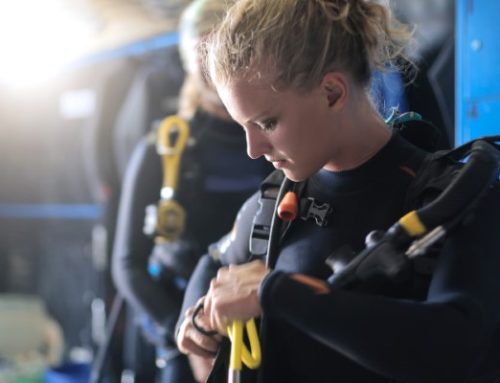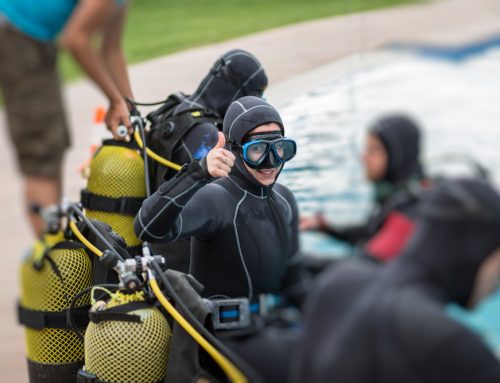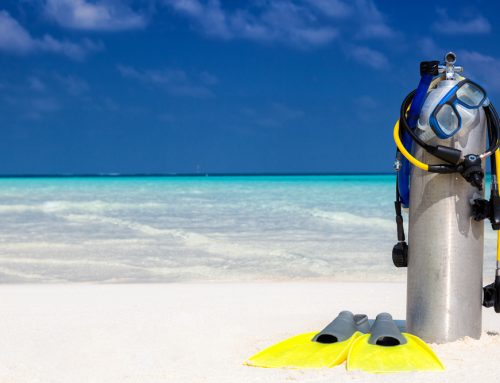Pre-dive preparation and conservative dive practices are obviously important, but what about the time between dives when you’re on the surface? Here are items from Divers Alert Network (DAN) to keep in mind during surface intervals:
Exercise and diving Regular exercise helps maintain fitness to dive but intense physical exercise may be problematic when performed too close to diving. To minimize the potential contribution of exercise to decompression sickness development, DAN recommends avoiding strenuous exercise for 24 hours after diving.
Sun safety When on the surface, minimize exposure to direct sunlight, particularly while wearing thermal protection and heat-absorbing dark colors. Wear a wide-brimmed hat, sunglasses with UV protection and diligently apply and reapply sunscreen (biodegradable versions can help protect the environment). You should also watch for signs of heat illnesses and prepared to respond appropriately.
Hydration While it isn’t as significant of a risk factor as a provocative dive profile, poor hydration may affect decompression sickness (DCS) risk. Take advantage of your time at the surface and rehydrate. You’ll want to do so at least 30 minutes prior to diving otherwise immersion diuresis will immediately flush water from the kidneys to the bladder.
Drinking and diving Alcohol consumption is strongly discouraged. Alcohol consumption depresses the central nervous system, impairing diver judgment and reducing both reaction time and coordination. It can also be a potential cause for dehydration.
Hot tubs or hot showers Getting into a hot tub or taking a hot shower immediately after diving has an effect on decompression stress and may bring on DCS symptoms. You can manage this risk by delaying when you get into a hot shower or hot tub, reducing the water temperature or diving more conservative dive profiles.
Breath-hold diving Freediving after scuba diving is not recommended because the additional exercise may promote bubble formation and there is a theoretical risk that bubble redistribution may lead to symptoms. Relaxed snorkeling, while remaining at the surface with minimal exertion, is probably fine, but more aggressive breath-hold activity should be avoided.
The staff at DAN is available if you have questions. You may call the DAN Medical Information Line at +1 919 684 2948, or email medic@dan.org.




